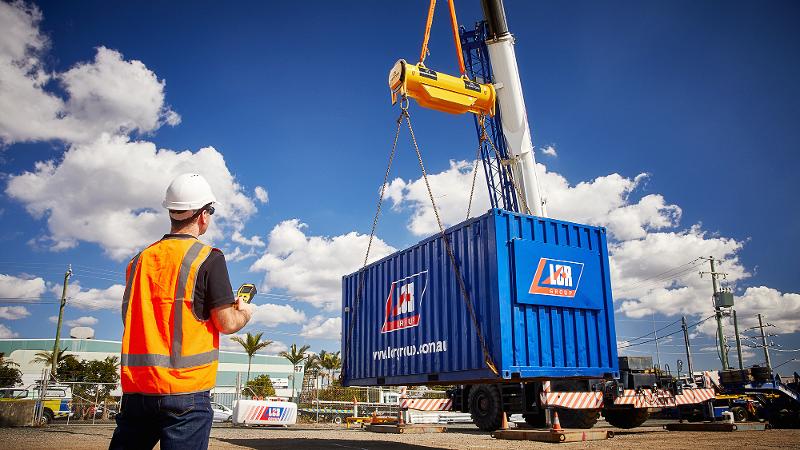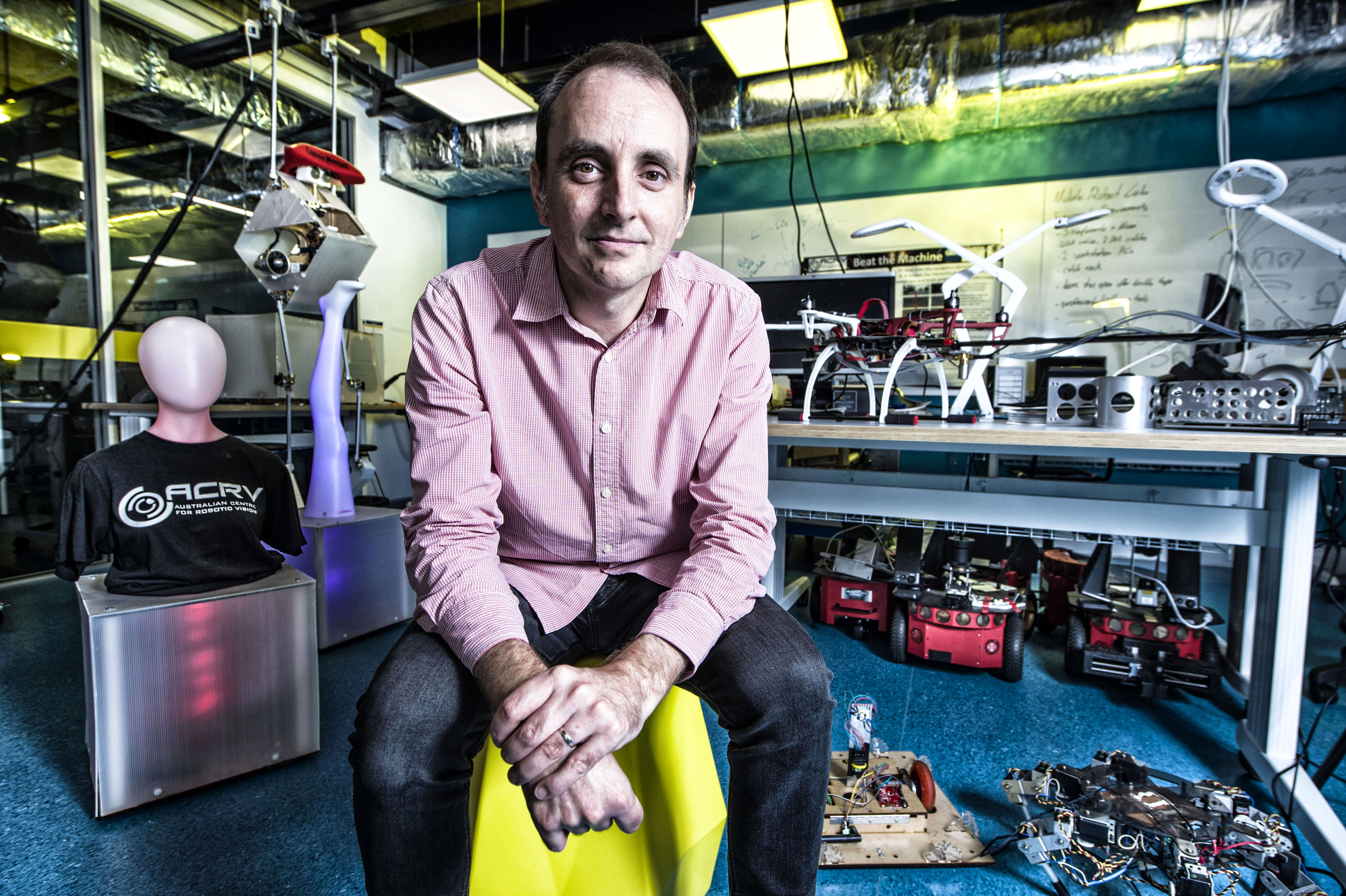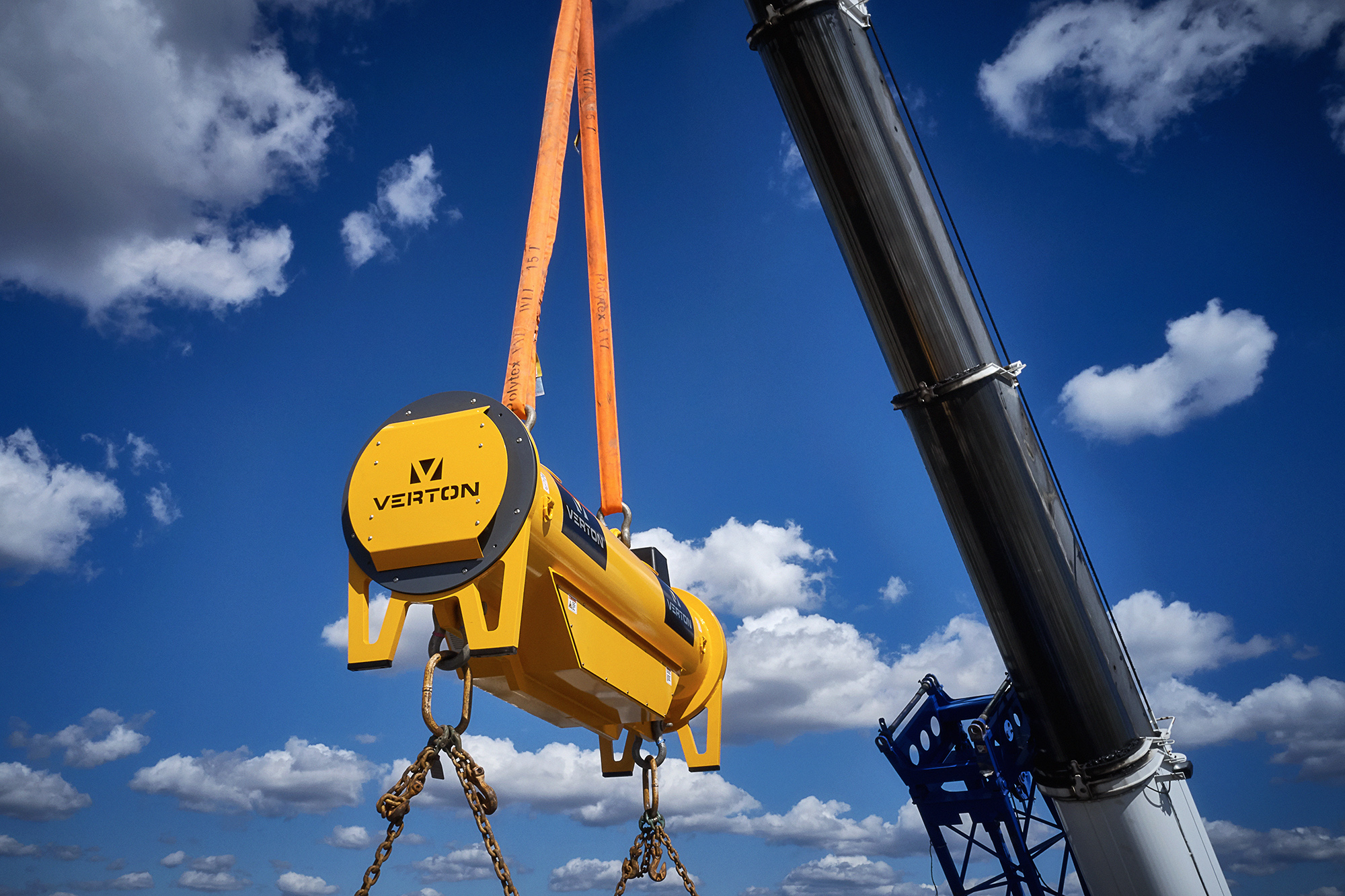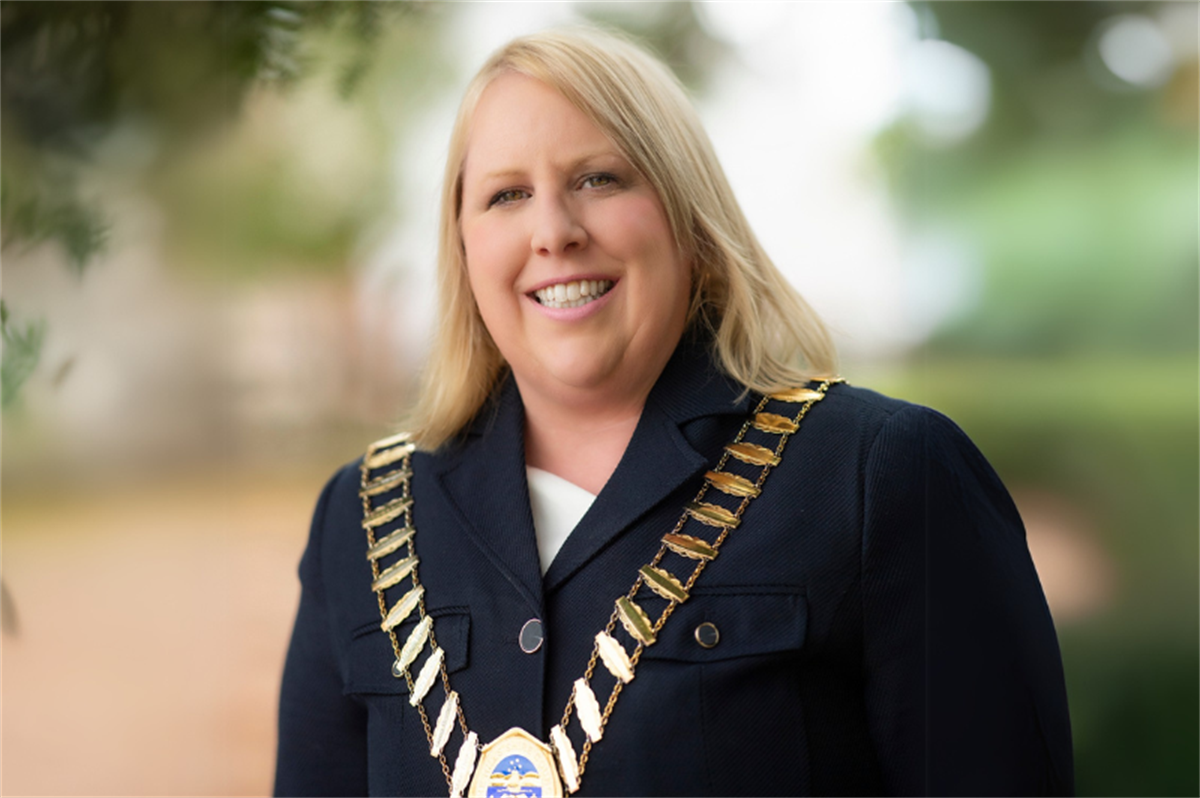
QUT robotics researchers are working with Brisbane-based technology company to advance the development of the world’s first remote-controlled load-management system that eliminates human held taglines for crane operations.
In a project involving , the researchers will look at how robotics will transform the manufacture, operation and use of Verton’s R-Series load-management system that is already being used for projects around the world.
A team of QUT researchers, led by Professor Jonathan Roberts, is taking a multifaceted approach in identifying ways to further develop Verton’s systems.

“We are excited by projects like this one when the aim is to make a traditional piece of equipment, like a crane, and turn it into a smart robot,” Professor Roberts said.
“For instance, the new device will enable the wind farm industry to install wind turbine blades more safely and in more challenging environments. It is currently not easy to install a blade, up to 100m in length, from a moving ship in high winds,” he added.
Professor Matt Dunbabin is working on the ways to improve the control system for the device, while Dr Chris Lehnert is looking at how robotics can be used in the manufacture of the device and data analytics research. Associate Professor Richi Nayak will be using machine learning to understand how the system’s performance could improve, and the Institute of Future Environments will improve the energy use.
Verton Australia CEO Trevor Bourne said the two-year project to bring together experts in robotics and data analytics to further develop Verton’s R-Series systems was an exciting development for the company.
“The R-Series has been attracting worldwide interest from transport, construction, renewable energy and mining companies around the globe and was recently recognised at Australia’s peak industry design awards, the Good Design Awards,” Mr Bourne said.
“To be involved in a project to adapt the development and manufacturing of the R-Series through the use of robotics is a compelling concept that has enormous potential.

“As well as enabling unprecedented safety for crane operations, the R-Series also improves efficiency and productivity.
“Our objective is for the product to be used all around the world and with the support and innovative expertise, of partners such as QUT and IMCRC, we are extremely confident of achieving this goal.”
The researchers will be using sensors on our equipment that will allow the cranes performance to be optimised, this includes investigating ways to improve the energy management and storage capabilities of the device.
IMCRC CEO and Managing Director David Chuter said with Industry 4.0, which uses transformative technologies to connect the physical world with the digital world, and the increased use of robotics, automation and data analytics, it was an exciting time to be involved in constructions and manufacturing.
“By embracing digitalisation and integrating advanced manufacturing technologies such as smart robotics and the Internet of Things, Verton, in collaboration with QUT, will create and export new flexible load-management solutions that can be seamlessly integrated and applied across multiple sectors,” Mr Chuter said.
“Collaboratively, they will change industries because they see the benefits that their manufacturing research will create, not just for Australia – but globally.”







